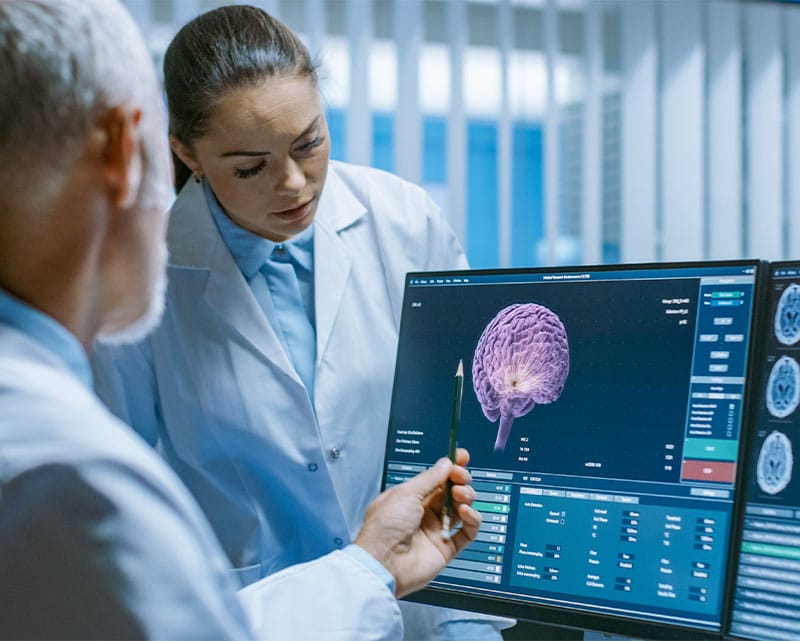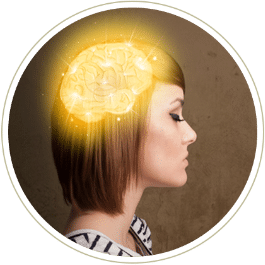Enterhealth is one of the first mental health treatment providers to offer Magnetic e-Resonance Therapy (or MeRT), an advanced, non-invasive neuromodulation treatment that utilizes repetitive transcranial magnetic stimulation (rTMS) combined with electroencephalography (EEG) or electrocardiography (ECG) to target and stimulate specific areas of the brain.
MeRT treatment involves the following:
Mapping brain activity. The process begins with a thorough assessment of the individual’s brain function using EEG or ECG. These neurophysiological measurements provide valuable information about the brain’s electrical activity and help identify areas with abnormal or dysregulated patterns.
Personalizing treatment protocols. Based on the EEG or ECG results, our team creates a personalized treatment protocol for each patient – targeting specific brain regions to address any abnormalities, irregularities, and imbalances identified in the EEG/ECG.
Repetitive Transcranial magnetic stimulation (rTMS). During the MeRT session, a specialized device delivers repetitive transcranial magnetic stimulation (rTMS) to the targeted brain areas. rTMS involves the application of magnetic pulses to the scalp, which generate small electrical currents in the brain. This stimulation is believed to promote changes in neural activity and connectivity.
Real-time monitoring and adjustment. MeRT often incorporates a “closed-loop” system, where real-time EEG or ECG data is used to guide the TMS stimulation. This means that the treatment is adjusted based on the individual’s brain activity at that moment, providing a more personalized and adaptive approach.


